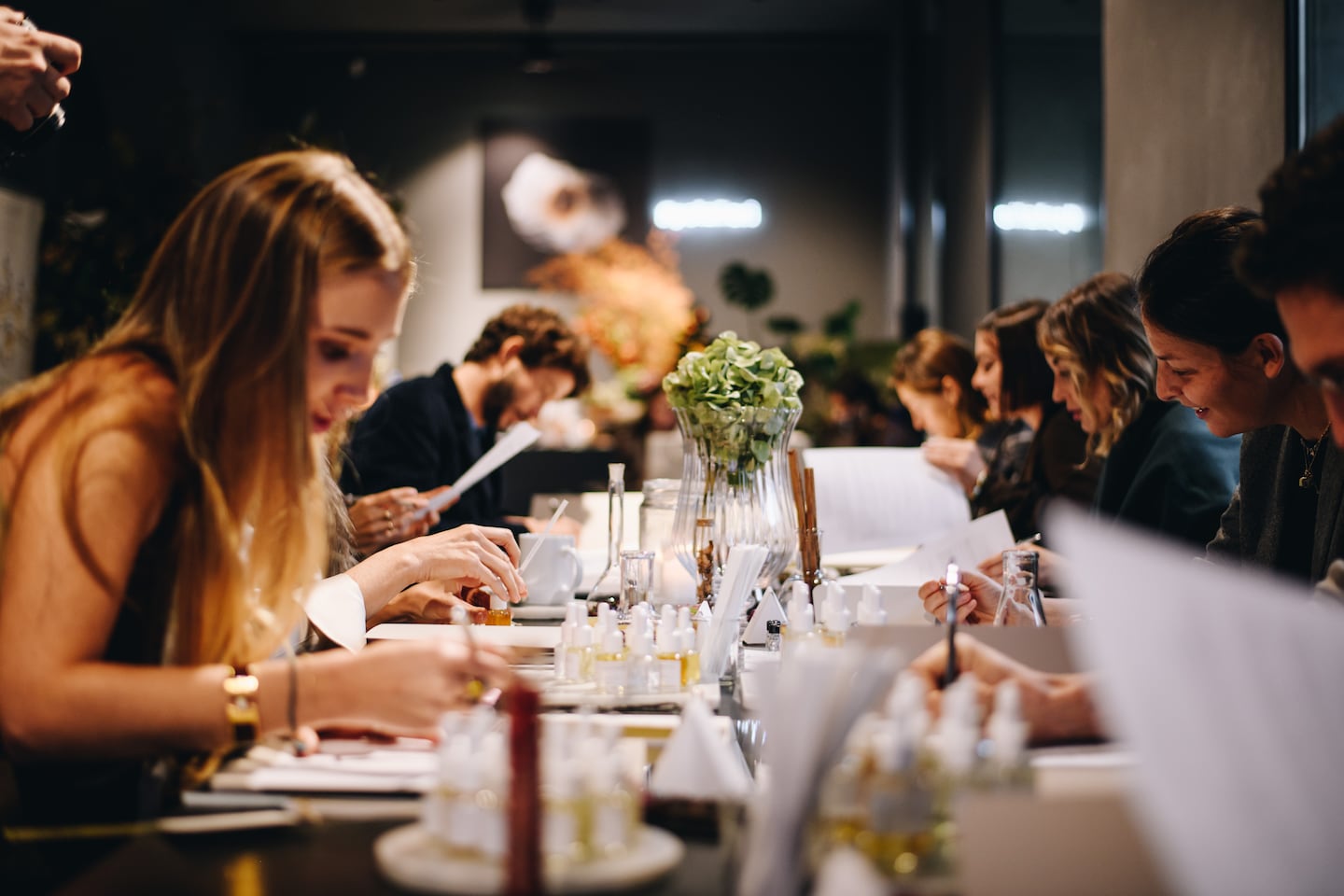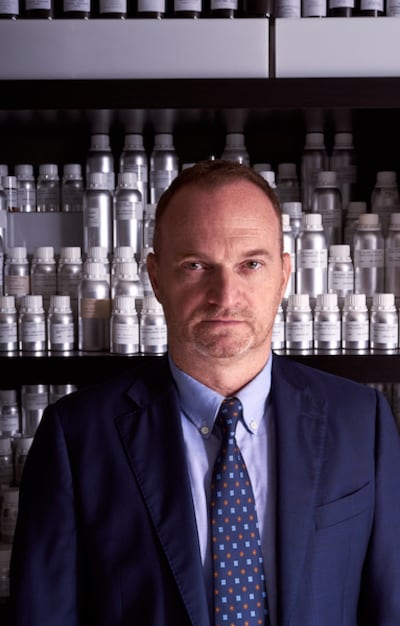
The Business of Fashion
Agenda-setting intelligence, analysis and advice for the global fashion community.

Agenda-setting intelligence, analysis and advice for the global fashion community.

Leveraging the correlation between memory and smell, Integra Fragrances taps into the power of scent to enhance its clients’ brand-identities and physical retail networks through olfactory experiences.
Integra Fragrances offers a compelling multi-dimensional layer to experiential retail, with long-term strategies for cognitive results. The fragrances are also packaged into online orders, extending brands’ scent identity to their e-commerce business by scenting branded items alongside an order. For some partners, these fragrances are leveraged in events and exhibitions, uniting all brand experiences olfactorily.
The Italian fragrance supplier launched in 2006 seeking to diversify and personalise the B2B olfactory offering within the luxury, fashion and retail space. Working with partners from Fendi and Bulgari to Salvatore Ferragamo and airline company Emirates, Integra Fragrances analyses brands’ style, values, target consumers and locations, synthesized into a brief to be fashioned into a fragrance by their team of expert perfumers.
As the fragrance industry moves towards more sustainable practices, Integra Fragrances is also seeking to expand and develop its sustainable scent identities, using biotechnology and new extraction methods to reuse waste products.

Now, BoF sits down with Lorenzo Cotti, CEO and founder of Integra Fragrances, to hear more about how the company works with its brand partners to design their fragrances and discover what embedding the power of scent into retail strategies both in-store and through experiential e-commerce can achieve.
What role can fragrance play in retail experiences?
Experience cannot exist without the olfactory element, which is intrinsically tied to memory. It is powerful because it is innate, so we must be careful about what and how we are communicating through scent — especially with physical stores becoming places that need to deliver full immersive experiences, as unique and memorable as possible.
A nice smell makes the shopping environment welcoming and comforting, so it increases the quality and quantity of the time spent in a store. It enhances the customer’s overall perception of products, brand, service quality and care. A pleasant shopping experience also creates positive emotions and associations, which make brands more memorable over time, and helps to differentiate them from competitors.
How do you develop fragrances?
A scent identity is the transposition of the brand universe into an olfactory creation. We work closely with brands so that their long-term strategy is considered prior to fragrance development. We conduct thorough research, from a brand’s store architecture to their values, origins and heritage, iconic products and materials, even colours, shapes, textures and fonts. Then, we consider the target consumer and its socio-demographic profile, market, retail format and advertising campaigns. The fragrance has to fit with all the brand elements, otherwise it is not cohesive.
For example, for LVMH-owned luxury brand Fendi, we wanted to create something rooted in the heritage of the brand — something that recalls the Roman Dolce Vita of the fifties. The famous French perfumer Olivia Giacobetti designed a unique fragrance to invoke the idea of a young woman opening her grandmother’s vintage cabinet. It denotes fur — a historical product of Fendi’s — suede, even the travertine marble columns in the store’s architecture. The patchouli essence and refined leather notes meet the Italian orris butter for an unmistakable Fendi experience. You walk inside a store and immediately, your nose is connected to the history of the brand.
You walk inside a store and immediately, your nose is connected to the history of the brand.
All of the scent identities we develop are tailor-made and exclusive to each brand. We also unify our brand analysis study with olfactory trends. Perfumery is like wine — one year, everybody drinks a sweeter, fruity flavour; 10 years later, it’s dry and mineral.
How can fragrance strategies extend outside of store networks?
A brand can use the corporate identity fragrance in many ways, not only inside the physical store, but also in headquarters, at events, in written communications or inside an e-commerce box. We believe multi-sensory e-commerce is the new frontier, so when you receive your box on the other side of the world, it will link to the physical experience in a brand’s multi-channel retail system.
Bulgari, for instance, asked us to build something to improve the retail experience they offer. They already have a staple fragrance — Eau Parfumée au Thé Vert, one of Bulgari’s iconic bestsellers — so, after running exposure tests and measuring droplets’ size to ensure that the nebulised fragrance is not harmful for health, we introduced this scent experience in their multi-channel retail operations, which includes their events and shows worldwide, like the high jewellery presentation and the Serpentiform traveling exhibitions.
How does your relationship with brands develop?
It’s a long-term partnership. Once a scent identity starts creating unique sensorial associations in the consumer’s mind and memory, it is not advisable to change it too soon after. If the fragrance remains the same, associations grow stronger in number and strength. We have customers who still connect the brand with the scent identity we developed 10 years ago.
We believe multi-sensory e-commerce is the new frontier, so when you receive your box on the other side of the world, it will link to a brand’s multi-channel retail system.
Sometimes, we refresh the fragrance after five, six years, but the overall perception remains the same — we sometimes change a few facets step-by-step over the years, giving the scent a more contemporary twist, often in keeping with a change in the format of the stores. Or, if a partnering brand decides to launch a new fragrance or fragrance collection, we support them from the product concept, across the packaging development and compatibility tests, until we deliver the product ready to be sold on the shelves.
How is technology incorporated into your operations?
We have over 4,500 remote-controlled scenting devices installed worldwide and connected to HVAC systems. Over the years we have developed a full-renting model in which brands do not need to worry about anything operationally. We own and operate the devices independently and remotely — we monitor the liquid levels, we change intensity and operating hours, we offer prompt assistance and take care of installation and maintenance.
We strive for constant innovation, constantly adapting our technology to new applications. Our devices also now have an opt-in sanitisation function. During the pandemic, we adapted our technology to sanitise the air, surfaces, HVAC ducts and filters in addition to scenting. We did 150 different tests on site and inside the laboratory and immediately saw results. Sensors can be installed to control air quality parameters real time, sending us call-to-actions to ensure best standards.
So, we are not just scent partners anymore — we are an air quality partner, I would say.
How are you adapting your offering to be more sustainable?
Now, we are seeing the largest luxury companies investing in sustainability inside their buildings, be that in headquarters, stores, warehouses — looking to take care of air quality and the comfort of their people.
Recent innovations include developments in sustainability. We have done research to develop sustainable scent identities, which are vegan, allergen free, rich in antimicrobial essential oils, natural and biodegradable, as well as responsibly and ethically sourced. We also increasingly use raw materials that come from biotechnology, which uses natural processes such as fermentation to transform waste materials.
Our scenting and sanitisation technology is certified, non-flammable and safe to be stored, and all our fragrances are IFRA and allergens compliant. We make exposure tests and health risk assessments to guarantee safety and absence of allergies even with prolonged exposure to the scent. We are well aware of brands’ concerns for the health of their customers and employees and we do everything possible and beyond to reverse it.
This is a sponsored feature paid for by Integra Fragrances as part of a BoF partnership.
From analysis of the global fashion and beauty industries to career and personal advice, BoF’s founder and CEO, Imran Amed, will be answering your questions on Sunday, February 18, 2024 during London Fashion Week.
The State of Fashion 2024 breaks down the 10 themes that will define the industry in the year ahead.
Imran Amed reviews the most important fashion stories of the year and shares his predictions on what this means for the industry in 2024.
After three days of inspiring talks, guests closed out BoF’s gathering for big thinkers with a black tie gala followed by an intimate performance from Rita Ora — guest starring Billy Porter.